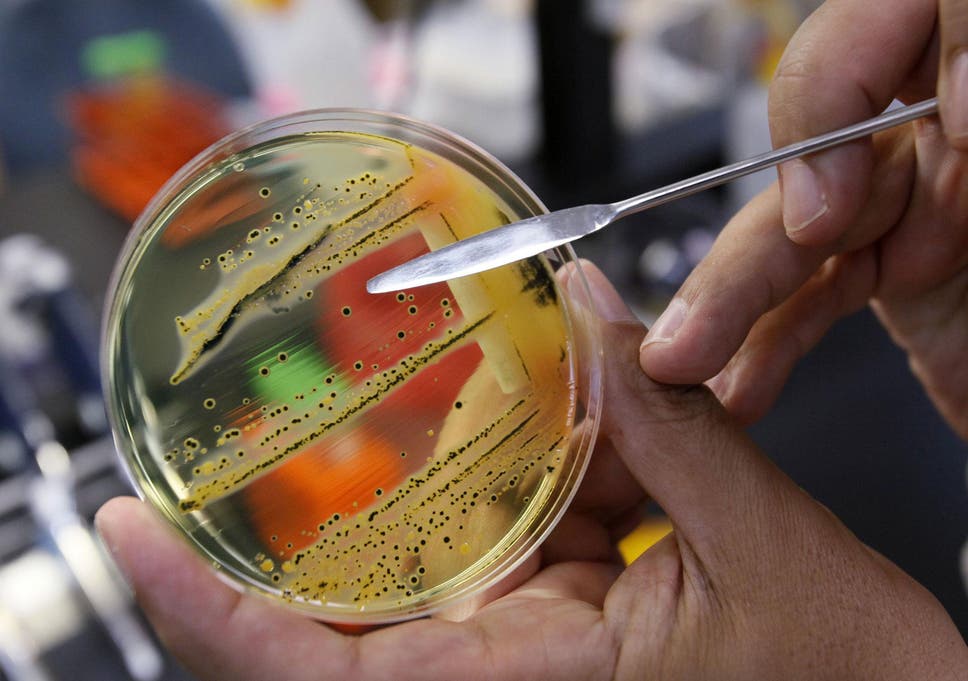
Scientists have unearthed a potential new weapon in the fight against the emergence of antibiotic drug resistance, by adapting the methods superbugs use to subdue other bacteria.
A toxin is released by the bacterium Staphylococcus aureus, better known as the drug-resistant hospital killer MRSA, as it infects its host.
But researchers at the French National Institute of Health and Medical Research (Inserm) found that the chemical, a type of peptide, would also kill even the most resilient microbes.
“We thought that if we could separate these activities, we would be able to create a new antibiotic non-toxic to the body,” said Professor Brice Felden, a microbiologist who led the research in conjunction with the University of Rennes.
“A challenge that we accepted.”
From the resulting group of 20 new synthetic peptides, dubbed “peptidomimetics”, they have identified two which appear to be safe to advance for human testing, and which bacteria have yet to find a way to show resistance.
In tests on mice, these substances were able to kill off antibiotic resistant forms of Staphylococcus aureus and Pseudomonas aeruginosa, which cause skin infections and deadly sepsis.
The drugs appeared to cause no harm to the animals at the levels equivalent to an antibiotic dose, or at very high levels where similar drugs can cause kidney damage that rules out their usefulness.
“We tested them at doses 10 to 50 times higher than the effective dose without seeing toxicity,” Professor Felden said of the research, published in the journal Plos One.
“We think these new molecules represent promising candidates for the development of new antibiotics that can provide alternative treatments to antimicrobial resistance.”
New drugs to kill Pseudomonas bacteria, and related “gram negative” strains such as E coli, are particularly difficult as the bacteria have an additional cell membrane that protects them from many treatments.
Health chiefs in the UK and around the world have warned the gradual spread of antibiotic resistance could return medicine to the dark ages, as existing drugs are being overused and new medicines aren’t being discovered fast enough.
This is in part because there is little incentive for drug companies to invest the vast sums needed to discover a new antibiotic and put it through human trials to get it licensed.
A breakthrough in antibiotics will be kept back as a last resort to minimise the chances that bacteria will develop resistance, and much larger profits can be made from tweaking existing drugs for incurable lifestyle conditions such as diabetes or heart disease.
As a result the UK government is trialling a new “subscription” approach to funding drug development, which would pay companies upfront for medicines based on their usefulness to the NHS, rather than units sold.
“With the ever-growing global threat of antimicrobial resistance, we need to incentivise innovative antimicrobial drug development more than ever,” said Gill Leng, deputy chief executive of the National Institute for Health and Care Excellence (Nice), which evaluates the cost effectiveness of new treatments.
“Should the testing of a new value assessment and reimbursement approach be successful and subsequently adopted, we hope that companies will be encouraged to increase their commitment to developing new antimicrobials to address the global issue of antimicrobial resistance.”







